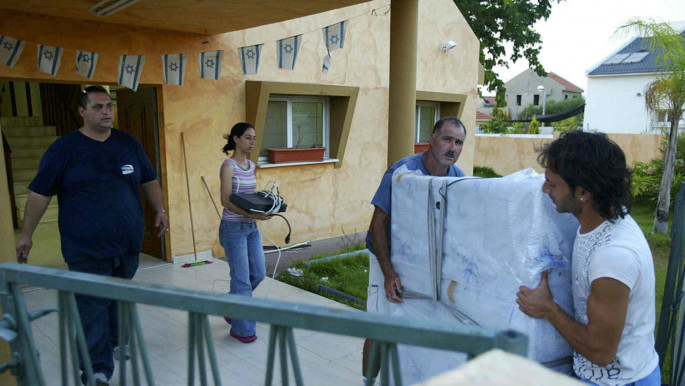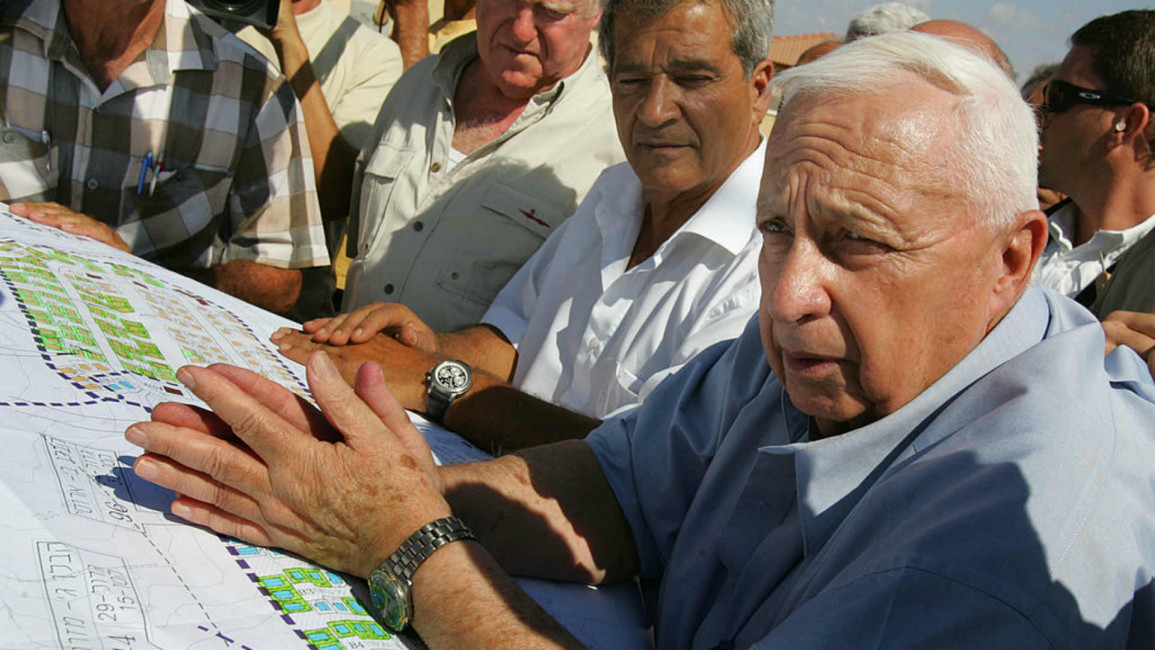
Israeli 'disengagement' from Gaza: A turning point
Crowds of Palestinians from refugee camps across the Strip flocked into the empty Israeli settlements for the first time since their construction began in the late 1970s.
I toured the southern Gaza settlements and discovered a municipal building, a synagogue and some other infrastructure that belonged to the Neve Dekalim settlement, near the Palestinian city of Khan Younis. It is now all part of the al-Aqsa University of Gaza's women's campus.
The abandoned Israeli settlements constituted almost 40 percent of the total Gaza Strip. Some remains still exist - the barbed wire fences, water wells and some farms built by Israelis on fertile Gaza land.
Yet Palestinian builders have failed to reuse the large swathes of land left by Israel - except for some tourist attractions by the seaside.
But recently, the Hamas-led government - with Qatari funding - has begun to establish residential buildings, mainly in the former Ganei Tal settlement, also in the Gush Katif bloc near Khan Younis.
Similar residential compounds have been converted near Rafah, mainly on the site of the former Israeli settlement of Kfar Yam, after a funding donation from Saudi Arabia.
But what was the significance of that unilateral Israeli withdrawal, twelve years ago today?
"The abrupt pull-out of settlers was completed amid a state of argument [between settlers and the Israeli government, and well as Palestinian officials]," said local university history professor Dr Nasser Alyafawi.
"This reminds me of the Algerian situation, following the French withdrawal from that Arab country. Right after the withdrawal of French colonial power, Algeria saw a dire economic crisis. Up to this moment, Gaza still faces economic hardship, and the economy of the territory continues to deteriorate. Those settlements had very good infrastructure - and upon the withdrawal, all such infrastructure was ruined."
 |
|
| The Fitusi family left their home in July 2005 as part of Prime Minister Ariel Sharon's disengagement plan in the northern Gaza Strip settlement of Nissanit [AFP] |
Nevertheless, Alyafawi believes the disengagement from Gaza was a deliberate move planned by Israel since at least the Herzliya conference of 1990.
"I do not believe that either from a geographic or religious point of view, Israel has ever been concerned about Gaza," he said. "Gaza is not a blessed place within the Torah, and Gaza is located away from Judea and Samaria, the Jewish name for the West Bank. Israel still maintains a presence over the West Bank and settlement activities continue unabated on that Palestinian soil."
Undermining Palestinian aspirations
Dr Naji Shurab, a Gaza-based political analyst, says the Israeli disengagement from Gaza was a deliberate step that aimed to undermine prospects for a future Palestinian state.
| Read more: Palestine, where 'occupation' dangles from the name | |
Israel has never wanted Palestinians to have a state of their own, he says. "Reinforcing this view is the stalling of the peace process, with Israel insisting on expanding existing Jewish-only settlements in the West Bank and constructing new ones.
"Gaza has, since the withdrawal, been under siege by Israel by land, sea and air. Israel has also launched three major attacks against Gaza in the past 12 years."
 |
Israel and other international players, including the US, were aware of the fact that the Palestinian Authority's mismanagement would not help Palestinians rebuild their nation |  |
Trapping Hamas
Shurab told The New Arab that, following the withdrawal from Gaza, both Israel and its key alley, the United States, pushed the Palestinian Authority, headed by the western-backed President Mahmoud Abbas, to hold general elections - and to allow the Islamist Hamas party, branded a "terrorist group" by the US, to run in legislative elections in order to sow discord among Palestinian bodies.
"Israel and other international players, including the US, were aware of the fact that the Palestinian Authority's mismanagement would not help Palestinians rebuild their nation. Therefore, Hamas, which had rejected the Oslo peace accords, was prompted to run for elections," Shurab told The New Arab.
He maintained that the Hamas victory in that election - deemed free and fair by international observers - had further complicated conditions for Palestinians. Much of the global community shunned Hamas, demading it accepted previously signed "peace" agreements (notably Oslo), recognised Israel's right to exist, and, crucially, renounced violence.
No such demands were made of Israel, incidentally, which ignored the Oslo accords with its West Bank wall-building and military incursions into areas meant to be under Palestinian control. Israel also refused to declare its own borders, with further West Bank land grabs and annexation expanding its territory. And it felt no compunction to renounce violence - as Operations Cast Lead, Pillar of Defence and Protective Edge showed.
And since the 2005 withdrawal, Gaza has not been allowed to repair its war-torn infrastructure, as Israel continued to undermine life in the territory, attacking the Strip under the pretext of fighting "the terrorist Hamas organisation", and thus blocking any chances of Palestinian national unity.
Throughout the 40 percent of the Gaza Strip which once housed 17 Israeli settlements, one today can only observe some new residential buildings, donated by Arab countries, three tourist attractions and some small-sized farms - all administered by the Islamist Hamas party.
"What Palestinians immediately need is a technocratic government that could immediately start planning reconstruction of the Gaza Strip - battered by frequent Israeli military attacks and the continued political split between the Fatah-led government in the West Bank and the Hamas-led government in the Gaza Strip," concluded Dr Alyafawi.
Rami Almeghari is a Palestinian freelance journalist living and working in Gaza. Follow him on Twitter: @writeralmeghari
Opinions expressed in this article remain those of the author, and do not necessarily represent those of The New Arab, its editorial board or staff.




